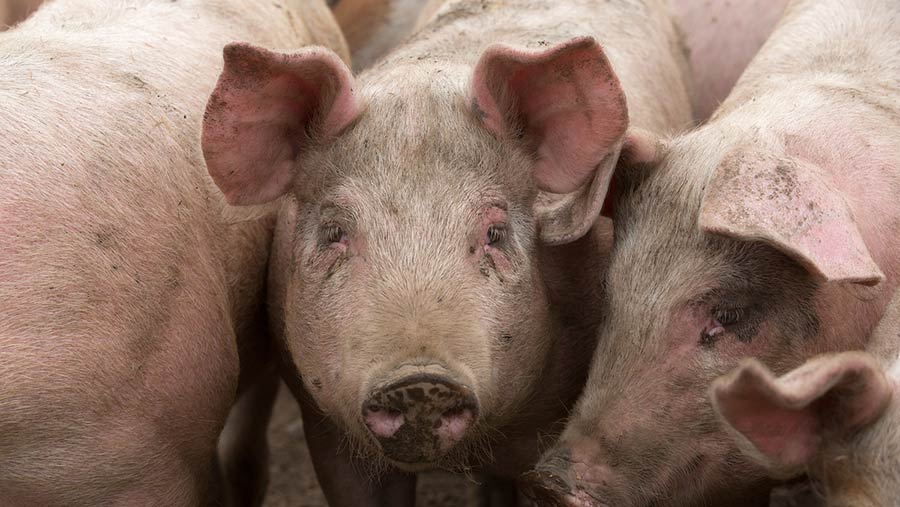Medical breakthrough could help farmers breed healthier pigs
 © Tim Scrivener
© Tim Scrivener The most accurate map of the genetic code of pigs yet produced may pave the way for farmers to breed healthier and more productive animals.
For the first time, scientists have decoded the whole genetic make-up of pigs in a development that they say will facilitate the discovery of genetic variations linked to key traits.
The study was led by scientists at the Roslin Institute and the US Department of Agriculture’s (USDA) Agricultural Research Service Meat Animal Research Centre and involved 40 scientists from 15 laboratories in the UK and US.
See also: 3 ways pig farmer is using data to improve herd performance
The scientists characterised the genomes of two different pigs – a sow from the Duroc breed and a male crossbred white composite boar, and included detailed information of a further 11 pigs from European and Asian breeds.
The findings could help improve selective breeding and enable more accurate use of gene-editing technologies to develop pigs with desired characteristics, such as resistance to infectious diseases, the researchers said.
Knowledge of the genome also enables identification of genetic similarities between pigs and humans, which will enhance biomedical research in which pigs are used as models to study human health.
Alan Archibald, UK study lead and personal chair of mammalian molecular genetics at the Roslin Institute, University of Edinburgh, said: “Pork is the most popular of all meats and, with a growing global population, we need to improve the sustainability of food production.
“The improved knowledge of pigs’ genetic make-up will help farmers breed healthier and more productive animals.”
Gene-edited pigs
Roslin researchers previously revealed they have used gene-editing techniques to develop the first pigs resistant to porcine reproductive and respiratory syndrome (PRRS), the costliest infectious disease affecting the animals worldwide.
The disease causes breathing problems and deaths in young animals and if pregnant sows become infected, it causes them to lose their litter. Each year, PRRS leads to losses of £1.3bn to the European pig industry and more than £500m to the US industry.
Vets working at the institute said the discovery should prompt discussion on allowing human consumption of genetically modified livestock.
To date, no incursion of African swine fever (ASF) – one of the world’s most devastating pig diseases which has severely affected the Chinese pig population and is working its way across Europe – has occurred in the UK. Roslin researchers are also working with others to develop ASF-resistant pigs.
The results of the latest study, which was funded by the UK Biotechnology and Biological Sciences Research Council, USDA, the Wellcome Trust and the Roslin Foundation, are published in the journal GigaScience.
